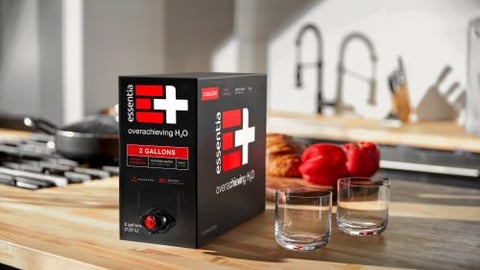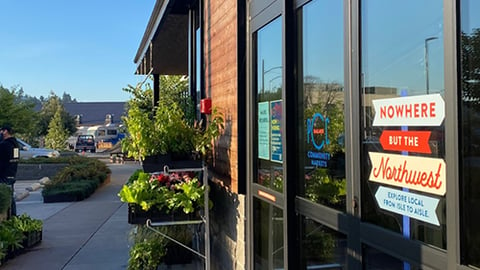2 More PCC Stores Meet Rigorous Green Building Standards
PCC Community Markets (PCC), the largest community-owned food market in the United States, has received Living Building Challenge (LBC) Petal Certification for its West Seattle and Bellevue, Wash., cooperative locations. The stores join PCC’s Ballard location, the first grocery store to receive this recognition, in meeting what are considered the world’s most rigorous green-building standards to earn the LBC Materials, Place and Beauty Petals from the International Living Future Institute (ILFI).
“By working with ILFI to reduce harmful chemicals in our stores and in reusing materials rather than sourcing new, PCC is taking small but important steps for the health of our staff, local communities and our planet,” explained Brenna Davis, PCC’s VP of social and environmental responsibility. “When building our new stores to be LBC Petal-Certified, we are working toward our vision to inspire and advance the health and well-being of people, their communities and the planet.”
LBC Petal Certification of the PCC stores required stringent attention to accomplish the following steps:
- Exclusion of Hazardous Materials: The PCC locations avoided hazardous materials on LBC’s “Red List,” which calls out 800-plus toxic “worst-in-class” substances that have the greatest adverse impact on people and local ecosystems, including polyvinyl chloride (PVC), which is commonly used to make belts in checkout stands.
- Investment in the Local Community: PCC worked to minimize the impact on the environment associated with the build and transportation of goods in construction. The co-op invested in materials sourced locally wherever possible and reused such materials as shelving and appliances from other locations. Further, 97% of building materials (by material budget) for the stores were sourced from within the United States.
- Protecting Local Ecosystems: The co-op contributed funds to protect, in perpetuity, land equivalent to the footprint of the stores — a little more than 49,500 total square feet — through ILFI’s Habitat Exchange Program, which protects ecosystems from harm as a result of development.
“PCC is showing people what a Living Future looks like, setting the tone for the whole sector,” noted Lindsay Baker, CEO of the ILFI, a Seattle-based global nonprofit organization. “With these new stores, PCC is building on its long history of putting the health of its workers and members at the center of its business practices.”
Additionally, the West Seattle and Bellevue stores both feature pieces by local artists aiming to embody the spirit of each neighborhood. In West Seattle, Celeste Cooning’s Cloud Wave installation was assembled from a reclaimed sailcloth to represent the essential life force of water, while Shogo Ota’s Murmuration in Bellevue showcases a flock of birds that while small individually, become mightier when they fly together, taking the form of a Southern Resident Killer Whale.
PCC will seek LBC Petal Certification for its other locations, including the upcoming Kirkland relocation and Downtown Seattle store. To that end, the co-op is taking part in ILFI’s Volume Pilot Program, which boosts efficiency when certifying several projects at one time by evaluating store design and materials at a portfolio scale.
In addition receiving LBC certification for three of its stores so far, PCC ranked 18th on the Environmental Protection Agency’s Green Power Partnership Top 30 Retail list this year and has also been working toward a more sustainable future by discontinuing the sale of plastic bottled water in packaging smaller than 1 gallon, teaming with Ridwell for local cork-recycling efforts, and supporting the Call 4 Climate Now campaign organized by The Climate Collaborative.
Seattle-based PCC operates 15 stores in the Puget Sound area, including the cities of Bellevue, Bothell, Burien, Edmonds, Issaquah, Kirkland, Redmond and Seattle. Besides the Kirkland relocation and new store in Downtown Seattle mentioned above, the co-op plans to open a new location in Madison Valley. In 2020, PCC gave more than 60% of pre-tax earnings to members and the communities it serves.






